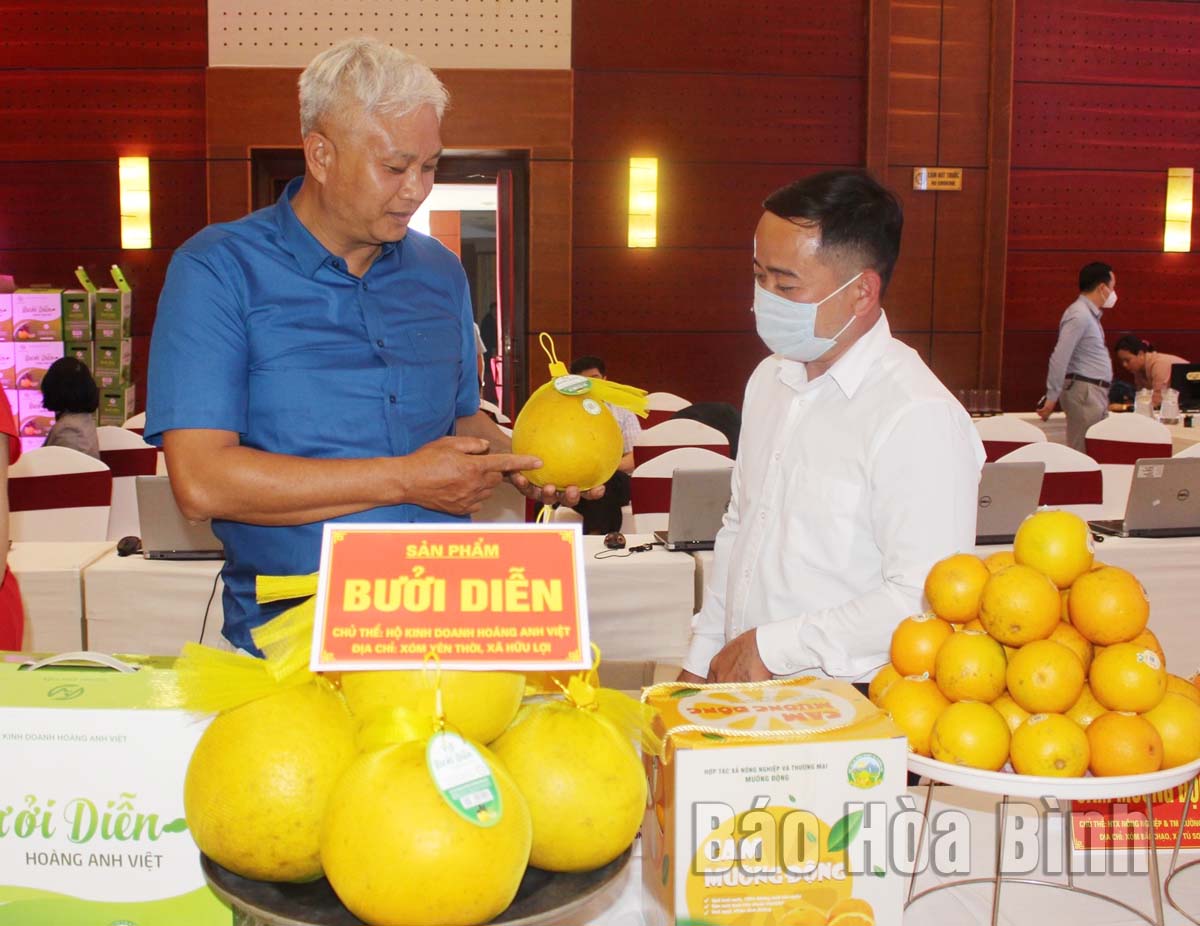


(HBO) – Yen Thuy district in Hoa Binh province now has 880 ha of pomelo cultivation, of which 415 ha are in harvest season and nearly 120 ha in Ngoc Luong, Huu Loi, Bao Hieu communes, and Hang Tram town are cultivated following VietGAP and organic standards. The average annual income from local Dien pomelo orchards is from 300 to 400 million VND per ha.

Yen Thuy district's Dien pomelo is recognised as a provincial-level three-star product under the One Commune One Product programme in Hoa Binh.
Hoang Anh Viet, from Huu Loi commune’s Yen Thoi hamlet, said the Dien pomelo trees are easy to grow and care for, with their fruits favoured by the market, ensuring stable output and high economic benefits.
The district has many households growing the fruit on large scale for high value, particularly the orchard of Ta Huu Hau in Hang Tram town, who plant Dien pomelo and orange trees on an area of over 2ha, earning an average annual income of about 400 million VND (17,575 USD).
On September 9, 2019, the National Office of Intellectual Property issued Decision No. 76495/QD-SHTT on granting a certificate of trademark registration for the Yen Thuy pomelo.
Following the VietGAP standards, pomelo growers have paid attention to the quality of land, water sources, and use bio-products. Famous for its aroma and sweet, juicy taste, the fruit is in favour of consumers in Hanoi, Hai Phong, Quang Ninh, and Ninh Binh, among others.
Bui Van Hai, Chairman of the Yen Thuy People’s Committee, said the local Dien pomelo has gradually gained its foothold on the market.
He informed that the district is focusing on extending its VietGap-certificated pomelo areas to help increase the quality and value, running communications activities to raise farmers’ responsibility in sustaining the pomelo quality, and boosting the formation of value chains./.